
Azraq: The Oasis of History and Nature in Jordan
Azraq, located in the heart of Jordan, is a unique blend of natural beauty and historical significance. This small town is renowned for its stunning wetland reserve, which serves as a vital stopover for migratory birds. The reserve, managed by the Royal Society for the Conservation of Nature, offers visitors a chance to explore diverse wildlife and tranquil landscapes. Bird watchers will find Azraq an absolute paradise, especially during migration seasons when the skies come alive with an array of bird species. In addition to its natural attractions, Azraq is home to the historic Azraq Castle. Built in the 13th century, this basalt fortification has been a strategic military post throughout history, including during the Arab Revolt. Walking through the castle's ancient halls, one can't help but feel the echoes of the past. The castle's robust architecture and intriguing history make it a must-visit landmark. Azraq is not just about history and nature; it offers a glimpse into the traditional Bedouin lifestyle. Visitors can experience the warm hospitality of the local community, sample authentic Jordanian cuisine, and even stay in traditional lodgings. The town's serene environment and rich cultural heritage provide a perfect escape from the hustle and bustle of modern life.
Local tips in Azraq
- Visit the Azraq Wetland Reserve early in the morning for the best bird-watching opportunities.
- Wear comfortable shoes when exploring Azraq Castle as the terrain can be uneven.
- Try the local dish 'Mansaf' at one of the town's traditional restaurants for an authentic Jordanian culinary experience.
- Bring binoculars and a camera to capture the diverse wildlife and stunning landscapes.
- Check the migration seasons if you're an avid bird watcher to plan your visit during peak times.
Azraq: The Oasis of History and Nature in Jordan
Azraq, located in the heart of Jordan, is a unique blend of natural beauty and historical significance. This small town is renowned for its stunning wetland reserve, which serves as a vital stopover for migratory birds. The reserve, managed by the Royal Society for the Conservation of Nature, offers visitors a chance to explore diverse wildlife and tranquil landscapes. Bird watchers will find Azraq an absolute paradise, especially during migration seasons when the skies come alive with an array of bird species. In addition to its natural attractions, Azraq is home to the historic Azraq Castle. Built in the 13th century, this basalt fortification has been a strategic military post throughout history, including during the Arab Revolt. Walking through the castle's ancient halls, one can't help but feel the echoes of the past. The castle's robust architecture and intriguing history make it a must-visit landmark. Azraq is not just about history and nature; it offers a glimpse into the traditional Bedouin lifestyle. Visitors can experience the warm hospitality of the local community, sample authentic Jordanian cuisine, and even stay in traditional lodgings. The town's serene environment and rich cultural heritage provide a perfect escape from the hustle and bustle of modern life.
When is the best time to go to Azraq?
Iconic landmarks you can’t miss
Al-Azraq Castle
Explore Al-Azraq Castle, a historic fortress in the heart of Jordan, where ancient architecture meets breathtaking desert landscapes.
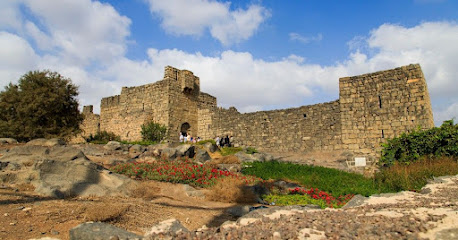
Roman Nymphaeum
Explore the Roman Nymphaeum in Amman, a magnificent historical landmark showcasing the splendor of ancient Roman architecture amidst a vibrant cityscape.
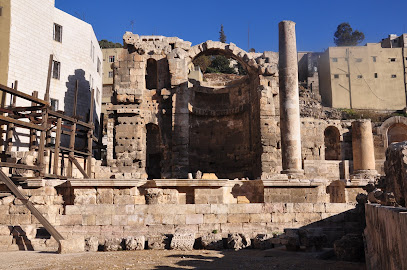
Azraq Wetlands Reserve
Explore the Azraq Wetlands Reserve in Jordan, a national park that captivates with its diverse wildlife, stunning landscapes, and rich cultural history.
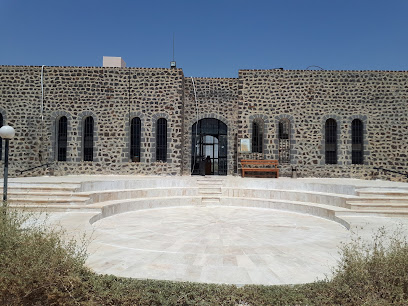
Qasr Al-Harranah
Explore Qasr Al-Harranah, a stunning historical landmark in Jordan, and step back in time to experience the rich cultural heritage of the region.
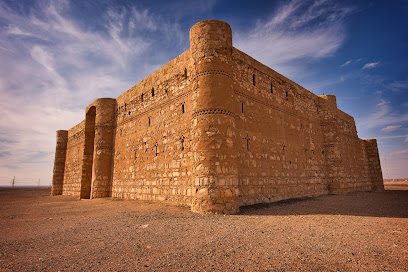
Quseir 'Amra
Discover the historical beauty of Quseir 'Amra, a UNESCO World Heritage site in Jordan, showcasing breathtaking early Islamic art and architecture.
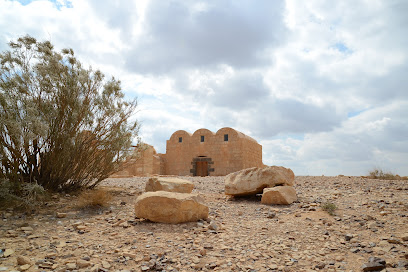
Shaumari Wildlife Reserve
Explore the breathtaking Shaumari Wildlife Reserve, a national park in Jordan filled with diverse wildlife and stunning landscapes, perfect for eco-tourism.
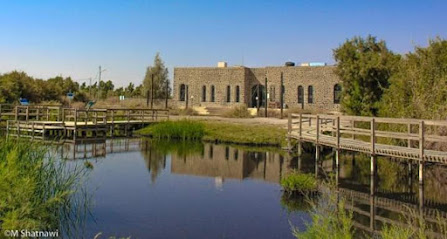
أزرق لودج
Experience the beauty of Jordan at Azraq Lodge, your perfect getaway surrounded by nature and history.

Qasr AlQastal
Explore Qasr AlQastal, a historical jewel in Amman, showcasing exquisite Umayyad architecture and rich cultural heritage amidst stunning landscapes.
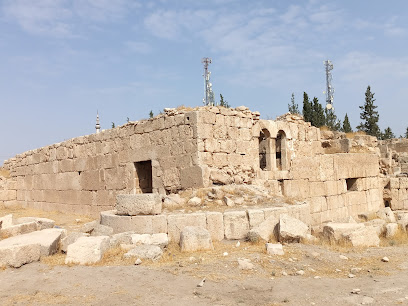
Byzantine Church
Discover the rich history and stunning architecture of the Byzantine Church in Amman's Citadel, a must-visit historical landmark in Jordan.
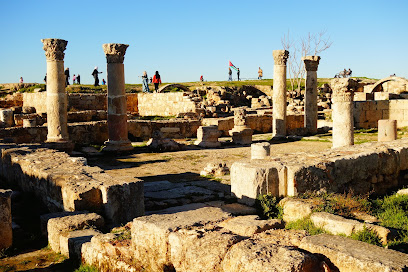
Qasr Tuba
Explore Qasr Tuba, a historical castle in Jordan that offers a glimpse into the rich cultural heritage and breathtaking landscapes of the region.
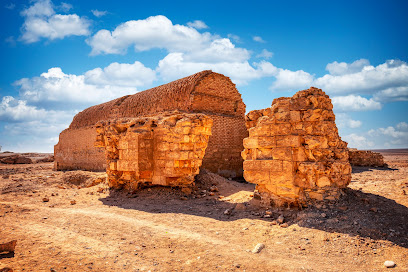
Roman Mausoleum
Discover the Roman Mausoleum near Amman, Jordan, a historical landmark showcasing ancient architecture and rich cultural heritage.
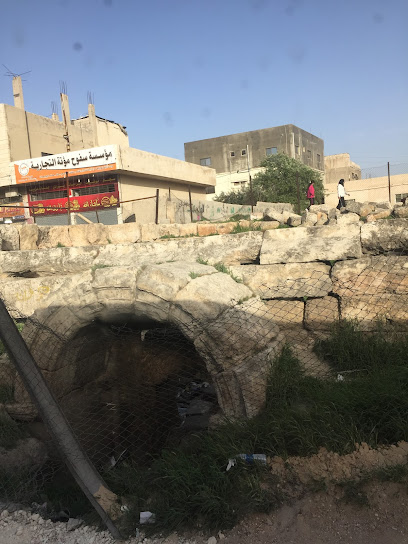
Umayyad Open Cistern
Unearth the historical marvel of the Umayyad Open Cistern in Amman, a testament to ancient engineering and urban water management.
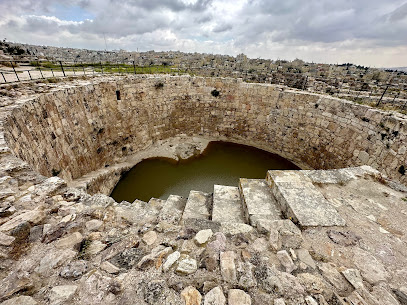
Wheels of the Ancients
Explore the enchanting Wheels of the Ancients in Al-Azraq Al-Shamaly, a captivating historical landmark steeped in rich cultural heritage and stunning architecture.
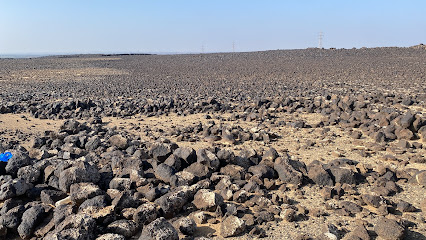
Abbasid Lime Kiln
Explore the Abbasid Lime Kiln in Amman, a historical landmark showcasing ancient craftsmanship and the rich cultural heritage of Jordan.
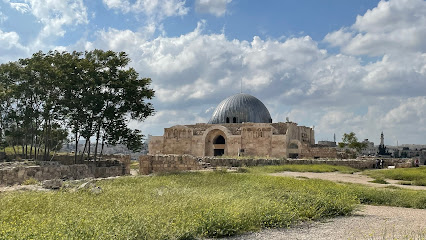
Umayyad House
Explore the Umayyad House in Amman, a stunning historical landmark showcasing the rich heritage of the Umayyad dynasty.
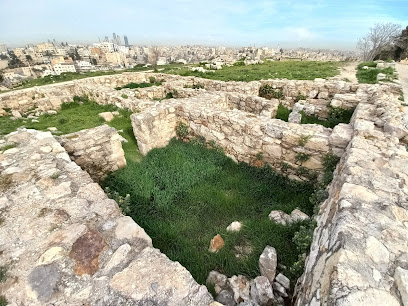
Unmissable attractions to see
Al-Azraq Castle
Explore the rich history and breathtaking architecture of Al-Azraq Castle, a stunning fortress in the heart of Jordan's desert landscape.
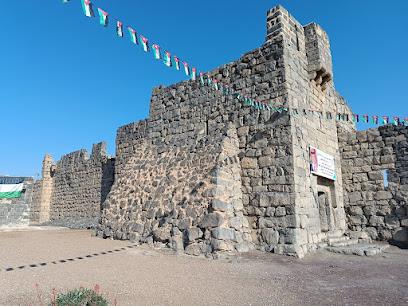
Quseir 'Amra
Explore Quseir 'Amra, a UNESCO World Heritage Site showcasing exquisite Umayyad architecture and rich Islamic history in the heart of Jordan.
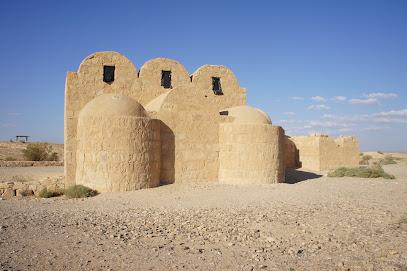
Qasr Al-Harranah
Explore Qasr Al-Harranah, an ancient desert castle in Jordan, showcasing stunning architecture and rich historical significance amidst breathtaking landscapes.
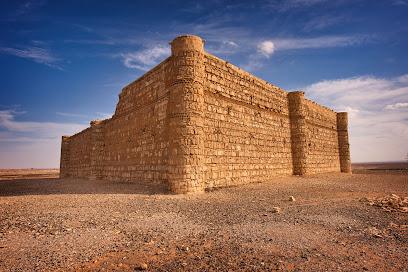
Azraq Wetlands Reserve
Discover the serene beauty and rich biodiversity of Azraq Wetlands Reserve, a haven for nature lovers and birdwatching enthusiasts in Jordan.
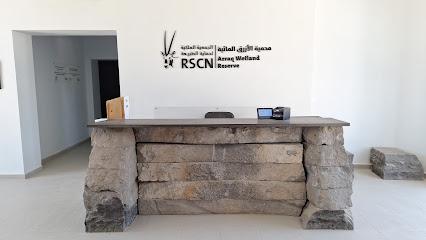
Tree of Al Buqayawiyya (The Blessed Tree)
Discover the enchanting Tree of Al Buqayawiyya in Safawi, a historic and serene site that embodies Jordan's rich cultural heritage.
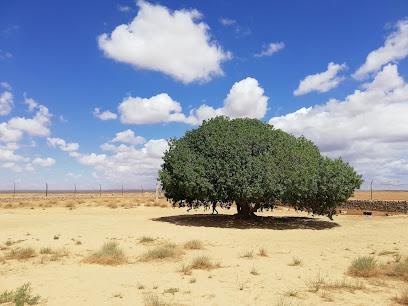
Shaumari Wildlife Reserve
Explore the stunning landscapes and rich biodiversity of Shaumari Wildlife Reserve, a premier destination for nature lovers and wildlife enthusiasts in Jordan.
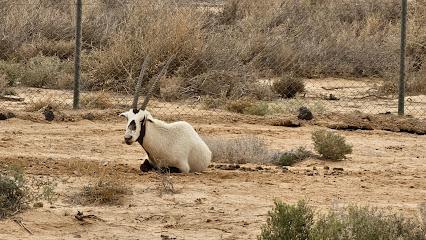
Al-Azraq City Park
Explore Al-Azraq City Park, a tranquil oasis perfect for relaxation, picnics, and family fun in Al-Azraq Al-Shamaly.
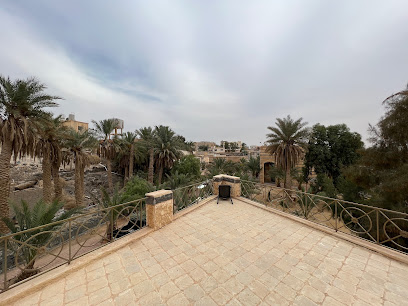
منتزة وحديقة الازرق العامة
Discover the natural beauty and serenity of Al Azraq Public Park, a perfect retreat for relaxation and family fun in Jordan.
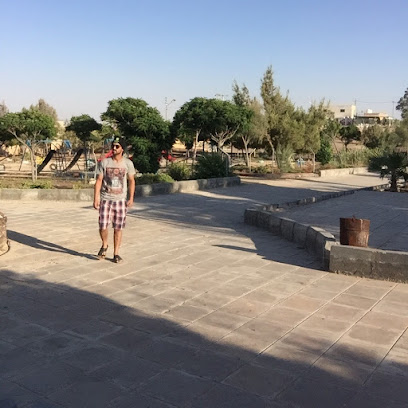
Mushatta Palace Farm
Explore the historic Mushatta Palace Farm in Amman, a stunning blend of ancient architecture and natural beauty that showcases Jordan's rich cultural heritage.
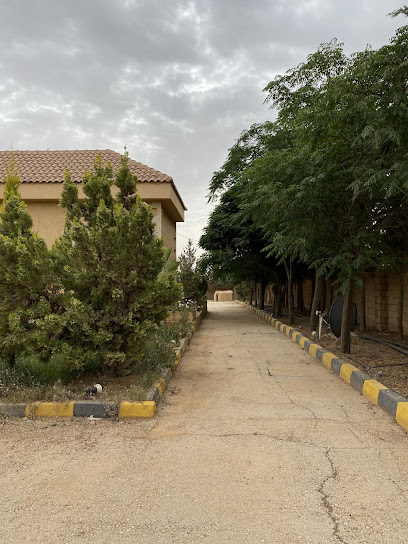
مزرعة السيف
Explore the scenic beauty and rich agricultural heritage of مزرعة السيف, a captivating tourist attraction in Rihab, Jordan.
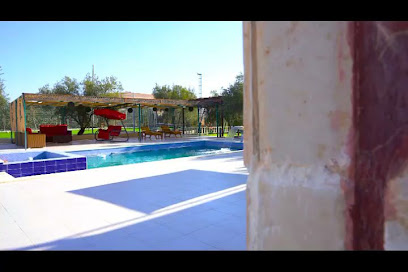
واحة الازرق المائية
Discover Al-Azraq, Jordan's serene oasis park, rich in biodiversity and history, offering a peaceful retreat for all nature enthusiasts.
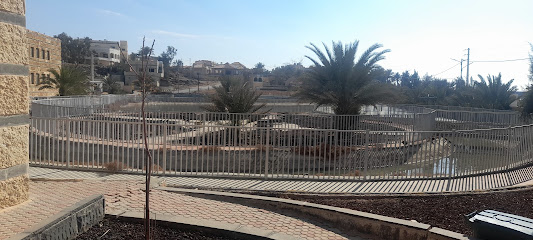
دوار جلالة الملك عبد الله الثاني بن الحسين المعظم منطقة الذهيبة الشرقية
Discover the Royal Al Abdullah II Shrine, a stunning tribute to Jordan's heritage, blending architectural beauty with serene landscapes in Al Mwaqqar.
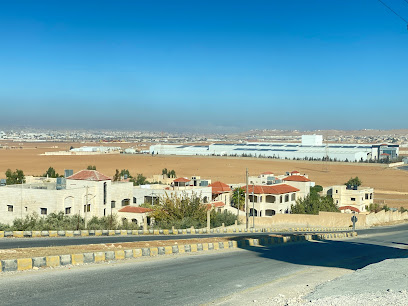
حفيرة الازرق
Experience the allure of Al-Azraq Castle, a historic gem in Jordan that offers breathtaking views and a rich tapestry of desert history.
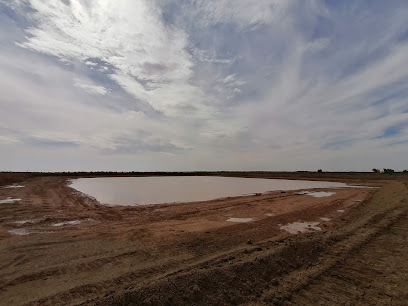
Wāḩat al Azraq
Explore Wāḩat al Azraq, a picturesque nature preserve in Jordan, rich in biodiversity and perfect for nature lovers and birdwatching enthusiasts.
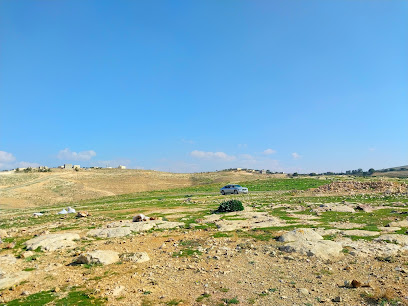
Uweinid Dam
Experience the serene beauty of Uweinid Dam in Azraq, a perfect getaway for nature lovers and adventure seekers in Jordan.
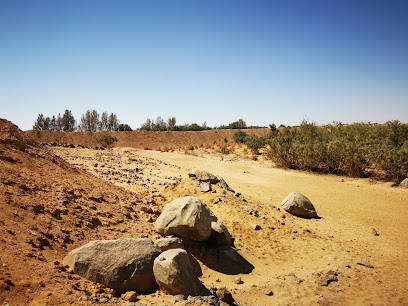
Essential places to dine
Sufra Restaurant
Discover Sufra Restaurant in Amman - where authentic Middle Eastern flavors meet family-friendly dining in a cozy atmosphere.
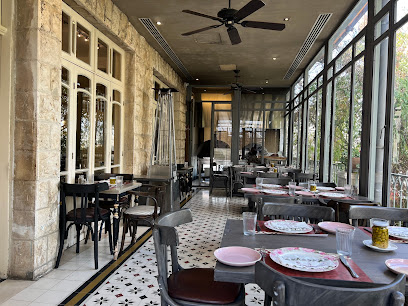
Buffalo Wings & Rings - Dead Sea
Savor delicious American cuisine at Buffalo Wings & Rings by the Dead Sea – where every bite is an adventure!
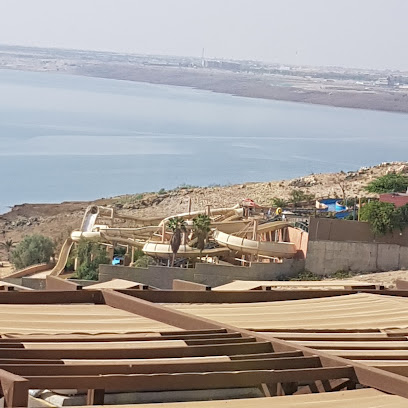
Watar Ziryab
Discover Watar Ziryab: A luxurious restaurant in As-Salt serving exquisite Jordanian cuisine with breathtaking views.
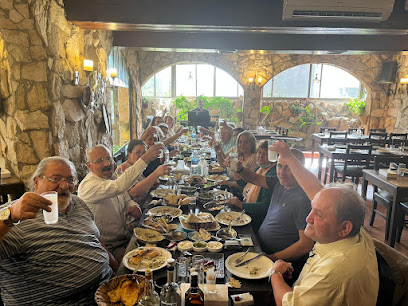
Abo Ziad Restaurant
Discover the heart of Jordanian cuisine at Abo Ziad Restaurant in Azraq—where tradition meets flavor in every dish.
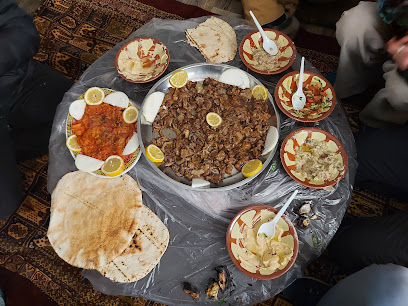
استراحة قصر الازرق السياحية Azraq Palace Restaurant
Discover delightful Jordanian flavors at Azraq Palace Restaurant, your culinary oasis on the International Baghdad Road.
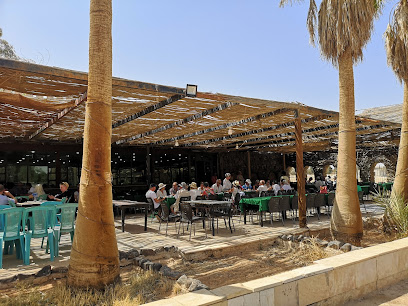
BONELESS HOUSE
Savor the authentic flavors of Jordan at Boneless House in Zarqa – where every bite tells a story.
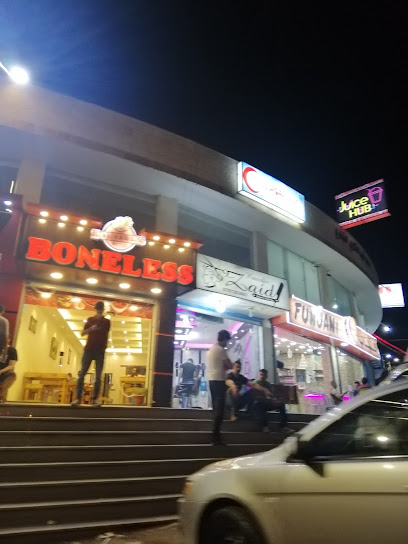
Riyadh Restaurant
Discover authentic Jordanian cuisine at Riyadh Restaurant in Azraq, where every dish tells a story and every meal is a celebration.
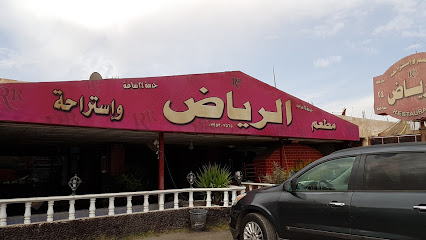
مطاعم ابو حسين الرفاعي
Experience authentic Jordanian cuisine at مطاعم ابو حسين الرفاعي in Amman – where every dish tells a story.
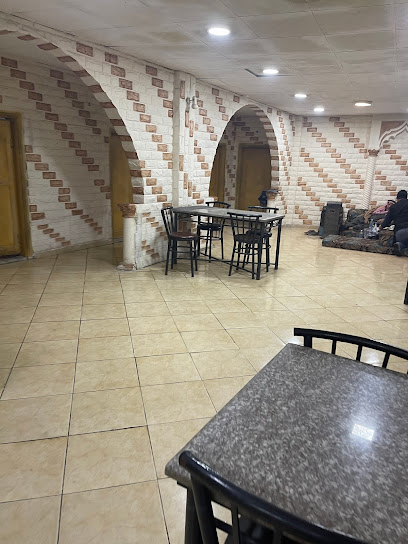
مطعم شيخ الكار الاصلي
Savor the flavors of authentic Jordanian cuisine at مطعم شيخ الكار الاصلي - A must-visit for food lovers exploring Jordan.
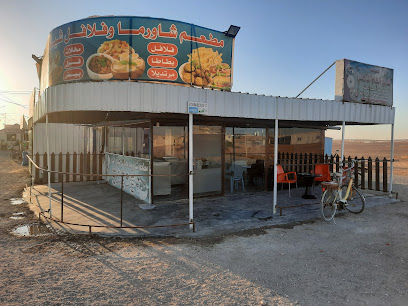
شاورما جنه الريان
Discover authentic shawarma at جنة الريان in Azraq - a delightful culinary experience blending rich flavors and warm hospitality.
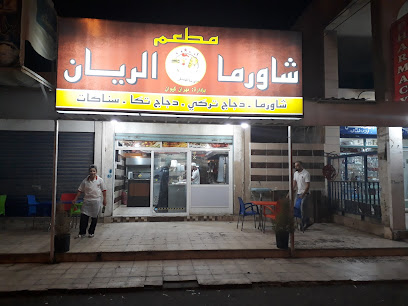
مطعم واستراحة القلعة
Discover traditional Jordanian flavors at مطعم واستراحة القلعة in Azraq—where culinary heritage meets warm hospitality.
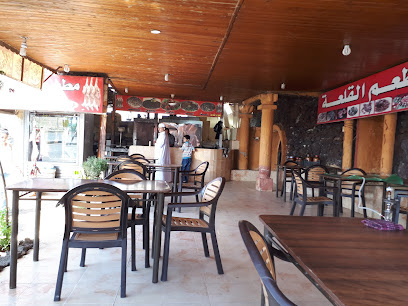
California 101 restaurant
Experience exquisite dining at California 101 Restaurant in Azraq - where tradition meets taste in every delicious dish.
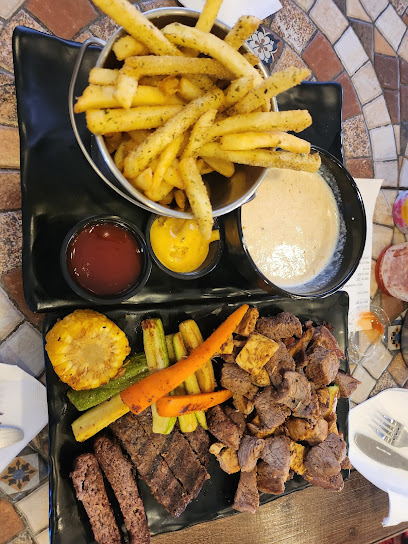
مطعم جنة عدن للماكولات اليمنية
Discover authentic Yemeni flavors at مطعم جنة عدن in Azraq – where tradition meets taste in every dish.
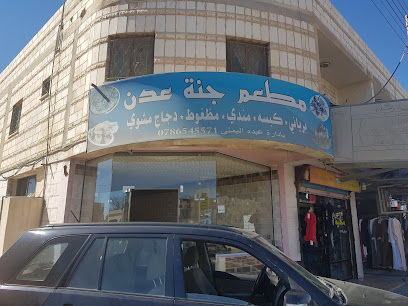
Food Station
Experience authentic American flavors at Food Station in Azraq – where comfort food meets warm hospitality.

مطعم البحري
Discover the flavors of Jordan at مطعم البحري - where authentic cuisine meets warm hospitality in Azraq.
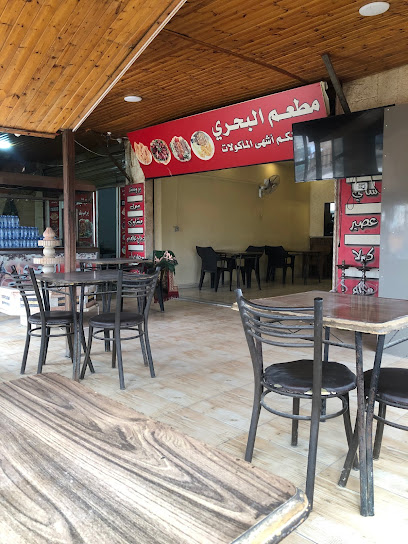
Markets, malls and hidden boutiques
alshoshan super market
Explore the flavors of Jordan at Alshoshan Supermarket in Azraq, where local culture meets convenience in a vibrant shopping experience.
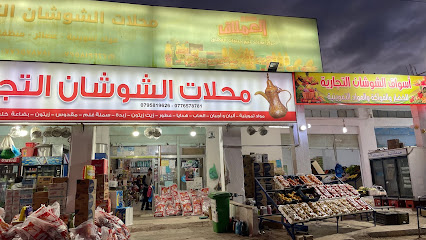
محلات المسافر
Explore the flavors of Jordan at محلات المسافر, your go-to grocery store in Azraq for fresh produce and local delicacies.

محمص وسوبر ماركت العارف
Explore Al Aref Grocery Store in Azraq for an authentic taste of Jordanian culture and local flavors, perfect for souvenirs and culinary adventures.
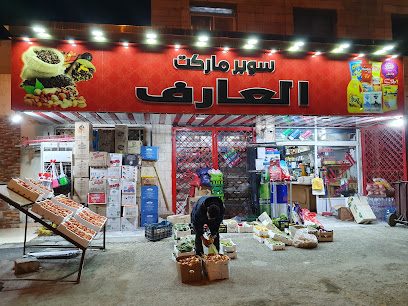
اسواق النصر التجارية
Explore the lively اسواق النصر التجارية in Azraq, where shopping meets local culture amidst a variety of shops and delightful dining options.
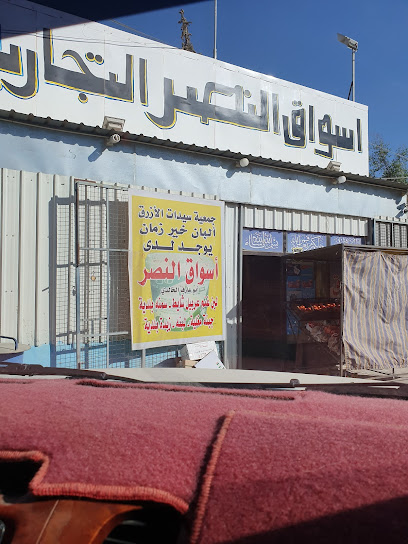
ALziyadi for building materials & tools الزيادي لمواد البناء
Discover top-quality building materials and tools at ALziyadi in Azraq, a must-visit for construction enthusiasts and DIYers.
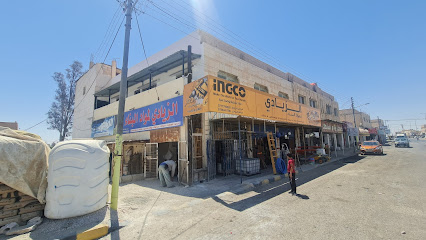
معرض حلا للألبسة الأوربية
Explore the elegance of European fashion at Hala Clothing Store in Al-Azraq Al-Shamaly, where style meets quality for every taste.
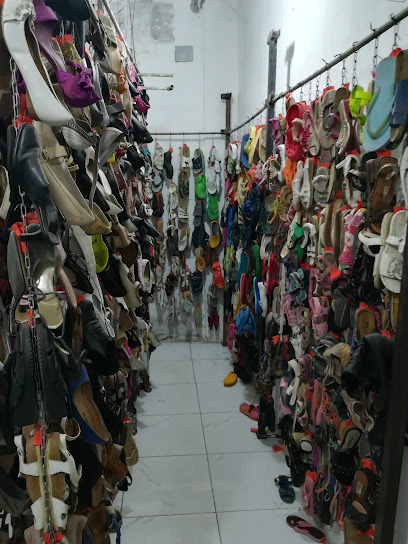
Al_baydaa supermarket and household tools
Explore Al-Baydaa Supermarket in Azraq for an authentic taste of local grocery shopping and household essentials.
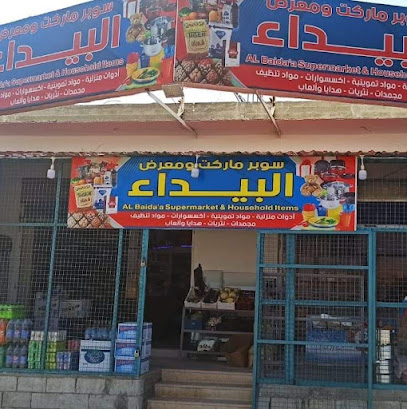
اسواق مروان التجارية
Discover the lively Marwan Commercial Markets in Azraq, a vibrant hub for shopping local goods and immersing in Jordanian culture.
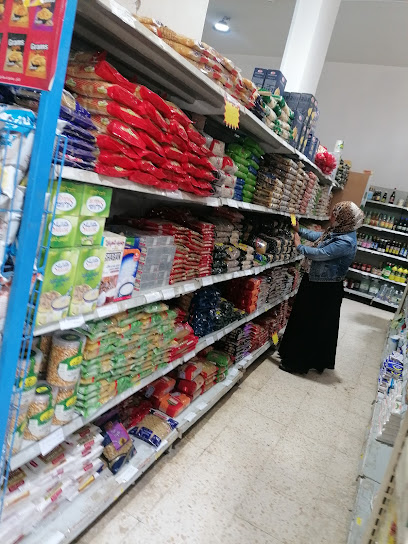
شيخ الكار مركز توزيع الادخنة والمعسل - الازرق الشمالي
Explore Sheikh Al-Kar in Al-Azraq Al-Shamaly, a must-visit tobacco shop offering a rich selection of traditional and flavored tobacco products.
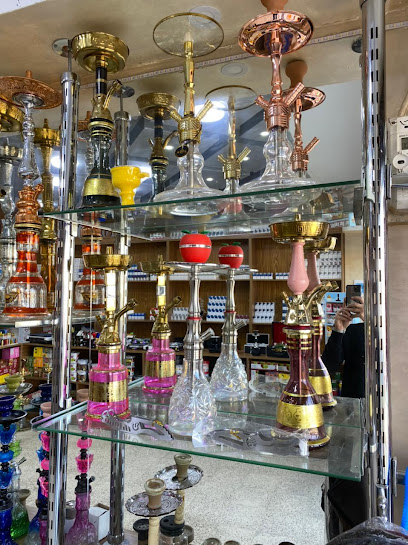
Pyro's
Discover the charm of Pyro's Coffee Shop in Azraq, where aromatic brews and cozy ambiance create a perfect retreat for travelers.
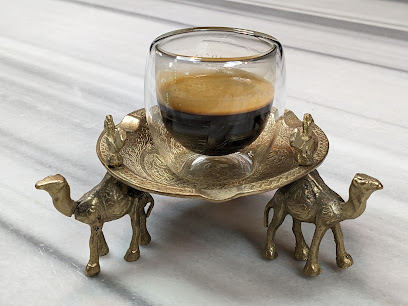
متجر البسة أوربية
Discover the latest fashion trends at متجر البسة أوربية, the go-to clothing store in Al-Azraq Al-Shamaly for unique styles and exceptional quality.

Azraq castle cafeteria
Explore the flavors of Jordan at Azraq Castle Cafeteria, a delightful market offering chocolates and coffee near the historic Azraq Castle.
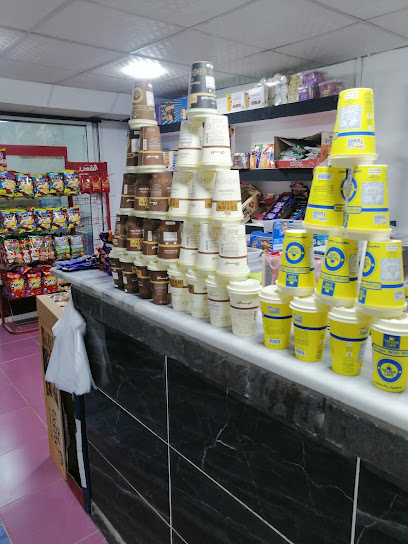
Highway Market
Discover the vibrant Highway Market in Azraq, where local flavors meet convenience in a friendly supermarket atmosphere.
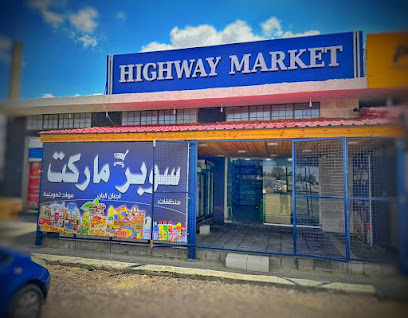
ابوبندر الحويطي لبيع الاغنام
Discover the Abubander Al-Hwaiti Sheep Market, a vibrant shopping hub in Azraq, where local culture meets tradition in the heart of Jordan.

محلات الصقر (أبو خالد) التجارية
Discover محلات الصقر (أبو خالد) التجارية, a vibrant supermarket in Al-Azraq Al-Shamaly, offering local goods and a taste of everyday life.

Essential bars & hidden hideouts
Rustic Bar and Eatery
Discover the vibrant atmosphere and delicious dishes at Rustic Bar and Eatery in Amman, where every meal is a celebration of flavor and hospitality.
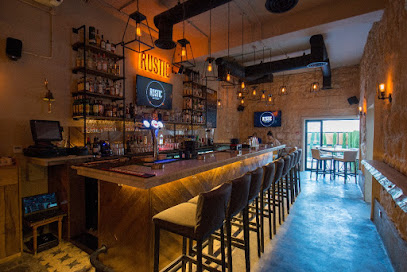
The Corner's Pub
Experience the lively atmosphere and local flavors at The Corner's Pub, Amman's favorite gathering spot for tourists and locals alike.
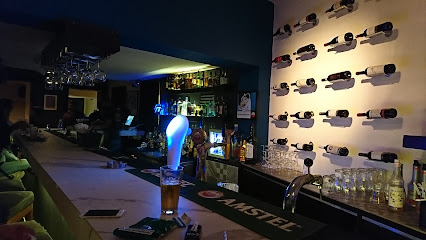
Good Pub
Discover the lively atmosphere of Good Pub in Amman, where locals and tourists gather for drinks, food, and unforgettable memories.
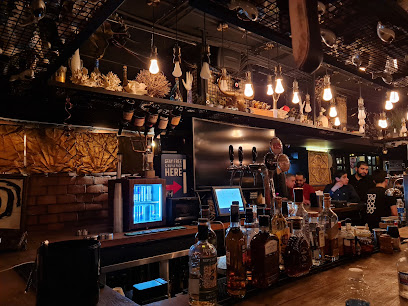
Red's
Discover the lively atmosphere and delicious cuisine at Red's, a premier pub and restaurant in Amman, Jordan.
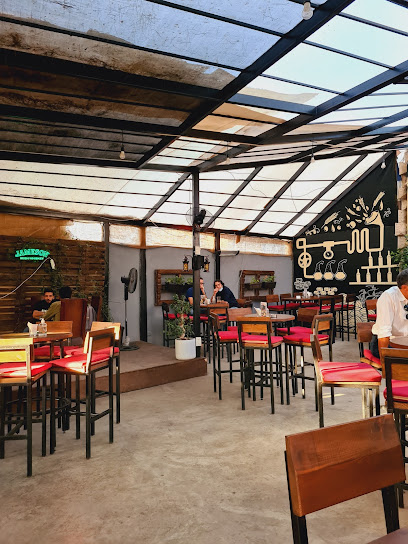
استراحة قصر الازرق السياحية Azraq Palace Restaurant
Discover the best of Jordanian cuisine at Azraq Palace Restaurant, where each dish tells a story of tradition and flavor.
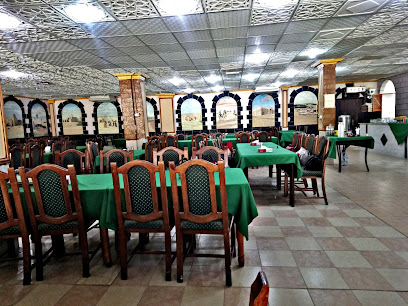
HQ Resto.Pub
Experience vibrant nightlife at HQ Resto.Pub in Amman, where delicious food and a lively atmosphere come together for an unforgettable evening.
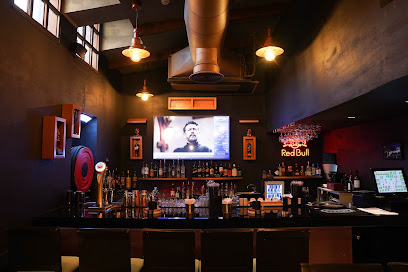
أزرق لودج
Discover the allure of Azraq with a stay at أزرق لودج, where comfort meets cultural richness in a breathtaking desert landscape.

Sekrab
Discover the flavors of Amman at Sekrab, a cozy restaurant and lounge on Rainbow Street, blending local cuisine with a vibrant atmosphere.
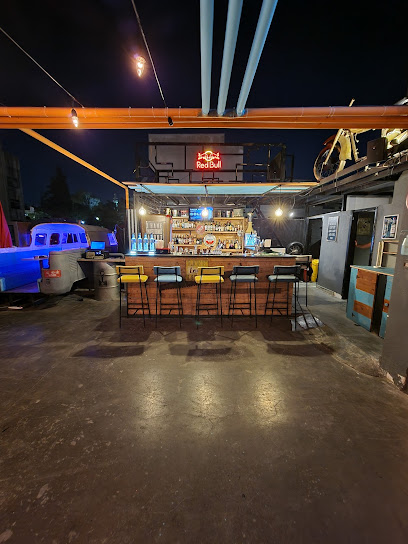
The Cellar
Experience the vibrant nightlife of Amman at The Cellar, where music and delicious food come together in a unique and inviting atmosphere.
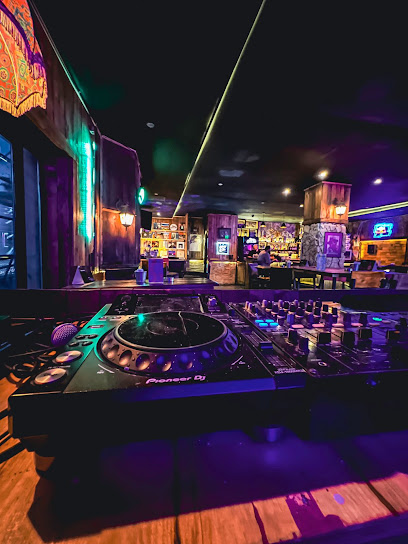
After Eight
Experience the vibrant nightlife of Amman at After Eight, a cozy pub known for its extensive drink menu and welcoming atmosphere.
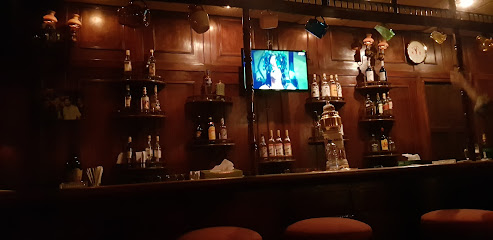
Elite Bar
Discover the lively ambiance and exquisite drinks of Elite Bar, a must-visit destination for nightlife enthusiasts in Amman.
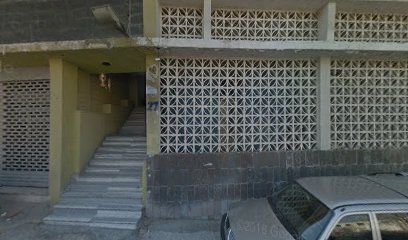
باص ستركس ابو غنام
Immerse yourself in Amman's nightlife at باص ستركس ابو غنام, where local flavors and vibrant atmosphere await every visitor.

الامل للمشروبات الروحية
Experience the vibrant atmosphere and diverse beverage selection at الامل للمشروبات الروحية in Al-Azraq Al-Shamaly.
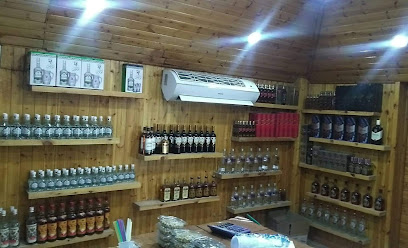
Cool bar
Experience Amman's vibrant nightlife at Cool Bar, where eclectic decor meets creative cocktails in a lively atmosphere.

Local Phrases
-
- Helloمرحبا
[marhaba] - Goodbyeوداعا
[wadaan] - Yesنعم
[naam] - Noلا
[laa] - Please/You're welcomeمن فضلك
[min fadlik] - Thank youشكرا
[shukran] - Excuse me/Sorryعذرا
[aadhran] - How are you?كيف حالك؟
[kayfa haluk?] - Fine. And you?بخير. وأنت؟
[bikhayr. wa ant?] - Do you speak English?هل تتكلم الإنجليزية؟
[hal tatakallam al-inglizia?] - I don't understandلا أفهم
[laa afham]
- Helloمرحبا
-
- I'd like to see the menu, pleaseأريد أن أرى القائمة، من فضلك
[urid an ara al-qaimah, min fadlik] - I don't eat meatأنا لا أتناول اللحم
[ana la atnaul al-lahm] - Cheers!صحتين
[sahhtain] - I would like to pay, pleaseأريد أن أدفع، من فضلك
[urid an adfaa, min fadlik]
- I'd like to see the menu, pleaseأريد أن أرى القائمة، من فضلك
-
- Help!النجدة!
[al-najdah!] - Go away!انصرف!
[ansarif!] - Call the Police!اتصل بالشرطة!
[ittasil bil-shurta!] - Call a doctor!اتصل بطبيب!
[ittasil bitabib!] - I'm lostلقد ضللت الطريق
[laqad dalalt altariq] - I'm illأنا مريض
[ana mareed]
- Help!النجدة!
-
- I'd like to buy...أريد أن أشتري...
[urid an ashtari...] - I'm just lookingأنا فقط أتفرج
[ana faqat atfarij] - How much is it?كم هو ثمنه؟
[kam hu thamanuh?] - That's too expensiveهذا غالي جدا
[hadha ghali jiddan] - Can you lower the price?هل يمكنك خفض السعر؟
[hal yumkinuk khafd al-sa'r?]
- I'd like to buy...أريد أن أشتري...
-
- What time is it?كم الساعة؟
[kam al-sa'ah?] - It's one o'clockالساعة الواحدة
[al-sa'ah al-wahidah] - Half past (10)العاشرة والنصف
[al-ashirah wal-nisf] - Morningالصباح
[al-subah] - Afternoonالعصر
[al-asr] - Eveningالمساء
[al-masa] - Yesterdayأمس
[ams] - Todayاليوم
[al-yawm] - Tomorrowغدا
[ghadan] - 1واحد
[wahid] - 2اثنان
[ithnan] - 3ثلاثة
[thalathah] - 4أربعة
[arba'ah] - 5خمسة
[khamsah] - 6ستة
[sittah] - 7سبعة
[sab'ah] - 8ثمانية
[thamaniah] - 9تسعة
[tis'ah] - 10عشرة
[asharah]
- What time is it?كم الساعة؟
-
- Where's a/the...?أين...؟
[ayn...?] - What's the address?ما هو العنوان؟
[ma hu al-anaan?] - Can you show me (on the map)?هل يمكنك أن تريني (على الخريطة)؟
[hal yumkinuk an tureeni (ala al-kharitah)?] - When's the next (bus)?متى يأتي الحافلة التالية؟
[mata yaati al-hafilah al-taliyah?] - A ticket (to ....)تذكرة (إلى...)
[tadhkirah (ila...)]
- Where's a/the...?أين...؟
History of Azraq
-
Azraq, meaning 'blue' in Arabic, is an oasis town located in the eastern desert of Jordan. It has been a crucial water source and habitation site for millennia, facilitating human settlement and trade routes across the arid landscape. The oasis has been a vital stop for caravans and travelers since prehistoric times, providing much-needed respite and resources.
-
The Azraq Castle, also known as Qasr al-Azraq, was originally constructed by the Romans in the 3rd century AD. The strategically positioned fortress was built using local basalt stones and was a key military outpost. The Romans utilized the castle to control the surrounding trade routes and protect the oasis, making it a linchpin in their desert defenses.
-
Following the decline of the Roman Empire, Azraq and its castle came under Byzantine control. During this period, the fortress continued to play a defensive role. In the 7th century, the Umayyad Caliphate took over, and the castle saw renovations that included the addition of a mosque. The Umayyads developed the oasis further, turning it into an administrative and agricultural hub.
-
During the Crusades, Azraq's strategic importance was recognized by both Crusader and Muslim forces. The castle changed hands several times before coming under the control of the Ayyubid dynasty in the 12th century. The Ayyubids made further modifications to the castle, enhancing its fortifications to withstand sieges and invasions.
-
Under Ottoman rule, Azraq continued to serve as a military stronghold. During World War I, the castle gained fame as the headquarters of T.E. Lawrence, better known as Lawrence of Arabia, during the Arab Revolt against the Ottoman Empire. Lawrence and his Arab allies used Azraq Castle as a base for their guerrilla operations, bringing the site into modern historical consciousness.
-
In the 20th century, Azraq faced significant environmental challenges due to over-extraction of water, leading to the depletion of its famed wetlands. Efforts have been made to restore and preserve the oasis, which is now part of the Azraq Wetland Reserve. The reserve aims to protect the unique ecosystem and provide a sanctuary for migratory birds and other wildlife.
-
Today, Azraq stands as a testament to the rich historical and cultural tapestry of Jordan. The town is inhabited by a diverse population, including Bedouins, Druze, and Chechens, each contributing to its unique cultural milieu. Visitors can explore the historical sites, including the restored Azraq Castle, and experience the blend of ancient and modern life at this remarkable oasis.
Azraq Essentials
-
Azraq is located approximately 100 kilometers east of Amman, Jordan's capital city. The nearest major airport is Queen Alia International Airport (AMM) in Amman. From Amman, you can take a taxi, rent a car, or use a public bus to reach Azraq. The journey by road typically takes around 1.5 to 2 hours. There are also organized tours that include transportation to Azraq.
-
In Azraq, local transportation options include taxis and rental cars. Taxis can be found easily in the town center and are a convenient option for short trips. For exploring the surrounding areas, renting a car can be a more flexible choice. Public buses connect Azraq to nearby towns and cities, but schedules can be irregular. It is advisable to arrange transportation in advance, especially for visits to remote sites like the Azraq Wetland Reserve.
-
The official currency in Jordan is the Jordanian Dinar (JOD). Credit cards are accepted in most hotels, restaurants, and larger shops, but it is advisable to carry cash for smaller establishments and markets. ATMs are available in Azraq, but it is recommended to withdraw sufficient cash in Amman before traveling to ensure you have enough funds for your trip.
-
Azraq is generally a safe destination for tourists. However, it is always important to take standard precautions. Avoid walking alone at night in unfamiliar areas and keep an eye on your belongings in crowded places. There are no specific high-crime areas targeting tourists in Azraq, but it is wise to stay vigilant and aware of your surroundings.
-
In case of emergency, dial 911 for immediate assistance. Azraq has a local police station and medical facilities. It is highly recommended to have travel insurance that covers medical emergencies. For minor health issues, there are pharmacies in the town where you can purchase over-the-counter medications.
-
Fashion: Do dress modestly, with shoulders and knees covered, especially when visiting religious sites. Avoid wearing revealing clothing. Religion: Do respect local customs and traditions. Always cover your head when entering mosques. Public Transport: Do be respectful and give up your seat to elderly passengers. Don't eat or drink on public transport. Greetings: Do greet people with a handshake or a slight bow of the head as a sign of respect. Eating & Drinking: Do try local delicacies and accept food offerings graciously. Don't refuse hospitality, as it is considered impolite.
-
To experience Azraq like a local, visit the local markets where you can buy fresh produce and traditional Jordanian goods. Engage with locals, as they are often friendly and willing to share stories about the town's history and culture. Don't miss visiting the Azraq Wetland Reserve and the Azraq Castle. For a unique experience, consider staying at one of the eco-lodges in the area, which provide an authentic experience of the local environment and culture.
Nearby Cities to Azraq
-
Things To Do in Mafraq
-
Things To Do in Amman
-
Things To Do in Madaba
-
Things To Do in Jerash
-
Things To Do in Salt
-
Things To Do in Irbid
-
Things To Do in Kerak
-
Things To Do in Dead Sea
-
Things To Do in Umm Qais
-
Things To Do in Ein Gedi
-
Things To Do in Beit She'an
-
Things To Do in Masada
-
Things To Do in Jerusalem
-
Things To Do in Bethlehem
-
Things To Do in Tafilah







